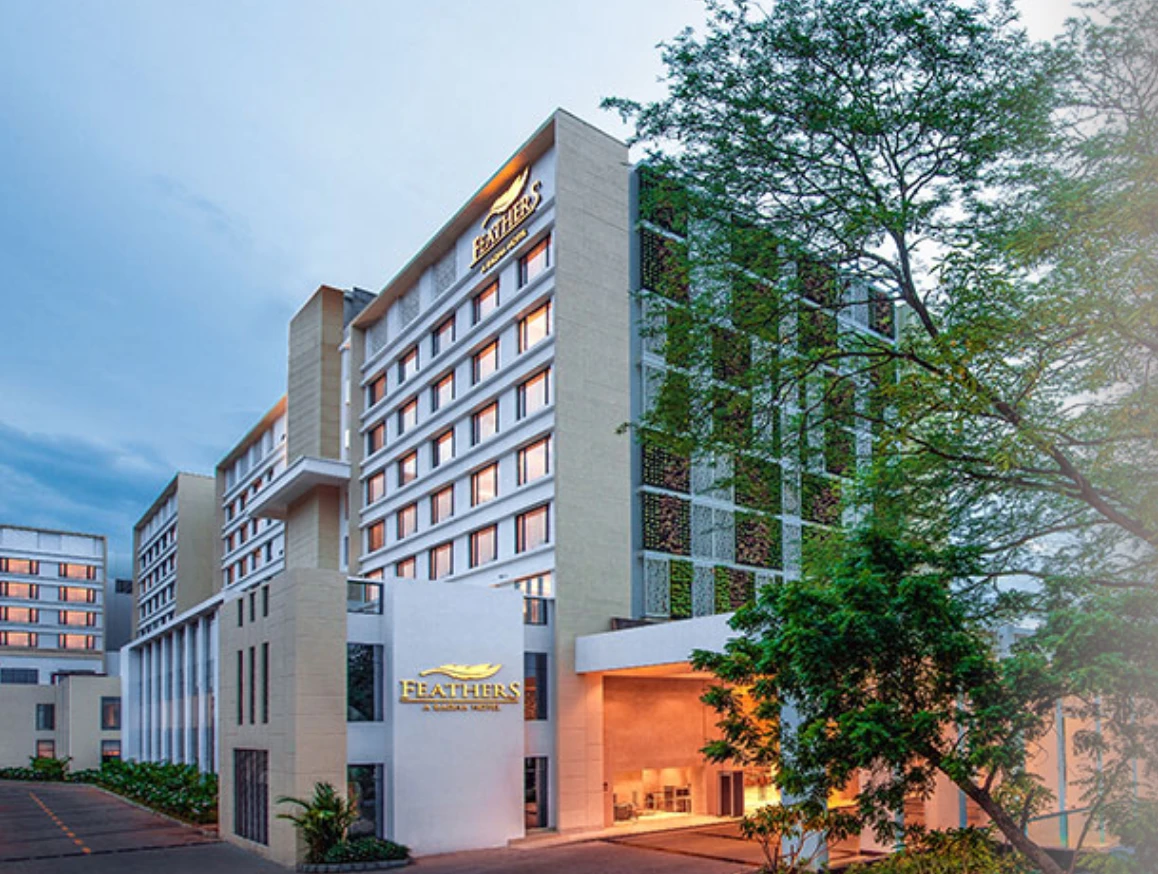AI and Technology in India’s Hospitality Industry
You can either fear Artificial Intelligence [AI] or use it to your advantage and use it best.
This also applies to the hospitality sector, which primarily provides guest service and has innovated AI to enable smoother operations and improve guest satisfaction.
AI is positively transforming the hospitality industry. AI’s beneficial effects on visitors are yet another essential feature. Hotels may better understand their guests’ preferences and tailor their recommendations using AI. Whether it is through in-room amenities or neighbouring attractions. That’s not all, though. In addition to saving hoteliers a ton of money, artificial intelligence also enhances the quality of their services. AI-powered chatbots that can answer visitors’ inquiries may reserve a room, relieving hotel workers of some of their workload and ultimately enhancing the quality of service. In general, the development of AI in the hotel sector will have a positive effect in the future. Here is how India’s hospitality industry has used AI and Technology.
Benefits of AI tools in the hospitality industry
Personalized Guest Experiences
Highly advanced and interactive technologies are incorporated into the analysis of guest information, including prior visits, preferences, and comments. The information gathered is then used to recommend a place to eat, a plan for spending time there, and a preferred type of room to book to increase guest satisfaction. For instance, a guest who has recently visited the hotel may find the sweets he or she liked in the room or receive recommendations of places to visit based on their preferences.
Chatbots and Virtual Assistants
Human-available chatbots and virtual assistants are now on the frontline of offering customer services in hotels. Those AI-driven solutions involve responding to booking requests, offering details about available facilities, and handling various requests instantly. They are available for service at all times, and some specific tasks that guests often have to wait for staff to attend to result in a more efficient process, mainly freeing up the staff for better service to guests.
Contactless Check-In and Check-Out
The next inevitable feature that has recently evolved to be contactless is check-ins and check-outs, especially after the COVID-19 pandemic. Some hotels have adopted the use of artificial intelligence in check-ins through kiosks and mobile applications, and they even select their rooms to access a digitally key-controlled room without recourse to human contact. Compared to traditional grid-tied systems, this technology affords nearly as much convenience while meeting present-day health and safety standards.
Smart Room Controls
Bright guest rooms are another attraction for technology-friendly tourists, and it is all about automation. Innovative technologies include light, temperature, curtains, and entertainment systems, where guests can use voice commands between wills or their mobile phones for control. This level of personalization enhances comfort and energy needs, providing visitors with an integrated technology-enriched experience.
Predictive Maintenance
Implementing the correct predictive maintenance approach in hospitality facilities is among the most valuable applications of AI. AI constantly observes the performance of the hotel equipment, and if the equipment is about to give in, it is noticed early to prevent expensive repairs. This anticipatory action minimises downtime and the usable life cycle of a building’s critical assets, such as elevators, HVAC, and kitchen equipment.
Dynamic Pricing Optimization
AI helps hotels set room rates and vary them depending on supply, demand, competitors’ prices, and even the weather. It is a real-time method of setting prices right, aiming to increase hotels’ revenue while keeping prices reasonable and in synchronization with the market price.
Robotic room service and cleaning
While it is hard to believe, machines, particularly robots, are used in hotels to deliver services such as room service delivery, cleaning and Sanitization. These are automatically controlled robots fitted with artificial intelligence and sufficient navigational facilities to make them move around the property most conveniently. They provide quick and self-service, contribute to a high level of cleanliness, and help minimize contact with people and automate routine work.
Data-Driven Marketing
It assists hotels in developing better and more efficient marketing strategies because it can peruse large volumes of customer data. Suppose the AI technology knows the booking behaviours, preferences, and even the feedback given by the guests. In that case, it can develop and execute marketing strategies that will enable the hotel to offer guests other customized marketing tools, such as providing offers that will enhance the chances of direct bookings.
Virtual Reality (VR) Tours
Enhanced Security Systems
Facial recognition and enhanced security through AI improve Hotel security in a very big way. These systems can detect security threats within the facility, track guests and staff, and guarantee that only those with privileges can access restricted spaces. This improves the guests’ security and increases their confidence in the security measures put in place by the property.
AI-Powered Menu Recommendations
In hotel restaurants and room service specifically, AI technologies apply guests’ preferences and restrictions on food consumption. It improves the customers’ experience since they get to choose from available foods. Thus, it enhances inventory levels by suggesting foods available in the kitchen to prevent loss through spoilage.
Sentiment Analysis for Guest Feedback
Guest user data is collected from various sources, and mentions and complaints are processed through machine learning algorithms. This analysis allows hotels to prevent problematic incidents, increase the quality of service delivery, and maintain a good reputation on the web, ultimately improving their chances of getting more bookings.
Conclusion
Automation and artificial intelligence continue to present significant changes in the hospitality industry in India as technology presents better ways of addressing guests and running businesses. From individual guest interactions to touchless room bookings, from proactive equipment maintenance to the flexible room rate setting, these technologies put the hospitality industry on a more thoughtful and efficient conduct track. Although adopting these technologies enhances the customers’ experience, it also makes hotels appealing to customers as innovative and responsive to new trends in the market. AI’s evolution can only mean that the hospitality industry can open a wealth of opportunities for advancement, which will be interesting for both guests and hotel owners.
Frequently Asked Questions
1. In what ways has AI enhanced guest experiences in the hospitality industry?
AI improves guests’ satisfaction by providing custom solutions, individual access to rooms, and the use of voice recognition systems, changing the perception of a stay at a given place.
2. What are the advantages of using contactless check-in systems in hotels?
Conventional check-in can be quite time-consuming, while contactless check-in provides convenience, reduced wait time, and a healthier way of avoiding physical contact with staff.
3. How does AI assist with hotel pricing?
It executes dynamic demand-based pricing, whereby the rate of the rooms has to be adjusted by using dynamic revenue management strategies such as competitor pricing and market demand conditions, which gives out the overall revenue of the hotel.
4. Are robots being utilized in the hotel industry?
Indeed, robots are deployed for services such as food delivery in rooms and cleaning and disinfecting areas.
5. How do security systems powered by artificial intelligence operate in hotels?
AI enhances security through facial recognition for guests and enhanced surveillance in the monitoring of hotel premises to reduce intrusion cases.
know more about our services

Restaurants
Spa
Banquet hall
Tea Lounge
Restobars
conveniently located
Perfectly located for business, medical, and leisure needs, the hotel offers unmatched accessibility. Just 8 km from Chennai International Airport and 1 km from the Chennai Trade Centre, it ensures convenience for travelers and event attendees alike.
It’s minutes away from major tech parks like DLF, Commerzone, and Keppel, and sits right across from MIOT International Hospital. Several renowned educational institutions, including SRM Ramapuram Campus, Easwari Engineering College, Sri Ramachandra Medical College, and the Saveetha Group of Colleges, are also within easy reach.
With this prime location, guests enjoy the perfect blend of convenience, accessibility, and comfort.
conveniently located
Perfectly located for business, medical, and leisure needs, the hotel offers unmatched accessibility. Just 8 km from Chennai International Airport and 1 km from the Chennai Trade Centre, it ensures convenience for travelers and event attendees alike.
It’s minutes away from major tech parks like DLF, Commerzone, and Keppel, and sits right across from MIOT International Hospital. Several renowned educational institutions, including SRM Ramapuram Campus, Easwari Engineering College, Sri Ramachandra Medical College, and the Saveetha Group of Colleges, are also within easy reach.
With this prime location, guests enjoy the perfect blend of convenience, accessibility, and comfort.
connect with us
info@feathershotels.com
ADDRESS
4/129, Mount Poonamallee Road, Manappakkam,
Chennai - 600089.





